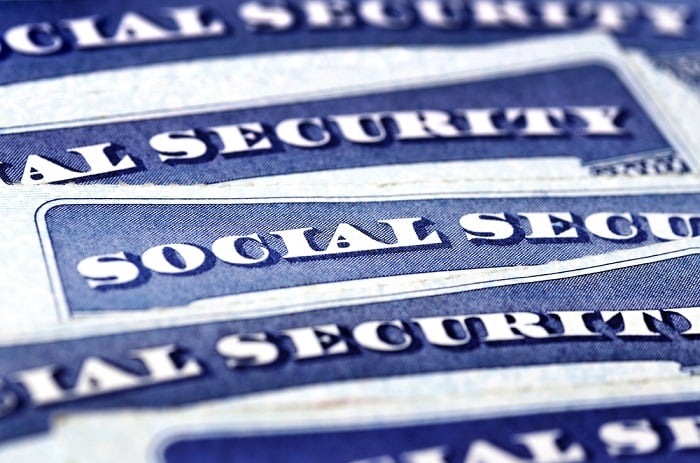 The man was relying on Social Security for retirement — but he wasn't worried. (Photo: Shutterstock)
The man was relying on Social Security for retirement — but he wasn't worried. (Photo: Shutterstock)
I took another look at his figures and asked him again, "$10,000?"
"Yep," he replied in that modest matter-of-fact fashion we so often see in fly-over country.
Recommended For You
He was weeks away from collecting his golden watch – and that was about all. He had nothing in his 401(k).
You'd think, from all the headlines you see, he'd be distraught. Quite the opposite. He was looking forward to his coming retirement with expectant enthusiasm.
Now, I'm just like the typical late baby boomer. I don't want to have to rely on Social Security and I don't believe my kids will ever see a penny from it. But, is it possible I'm wrong? (See, "Much Ado About Nothing Saved for Retirement? Why Social Security Alone May Be Enough," FiduciaryNews.com, March 13, 2018).
As I dug deeper into the fellow's retirement expenses, it became clear I wasn't sitting next to some naïve rube. He had carefully plotted out everything.
He anticipated some contingencies and planned accordingly but accepted the fact a catastrophe would ruin him.
I pondered this for a moment. Indeed, a catastrophe would ruin him. It would ruin anyone. The difference is most people worry about it, even though they can't do anything about it. He didn't. The Serenity Prayer and all that.
Here's the crazy thing about Social Security: Your benefit is based on your past earnings, not your cost of living. That means you can spend your career in a high cost of living city, max out on Social Security, then move to a city (or rural town) with a low cost of living.
Of course, if you've spent a career earning enough to max out your Social Security, you've probably developed a fairly healthy spending habit. You'd be in for quite a shock if you're planning to survive in retirement with just the income you receive from Social Security.
Chances are, therefore, if you are a higher income earner – that is, you max out your Social Security (or come close to it) – you probably don't want to rely solely on Social Security when the time comes to retire.
Which brings us back to the man I was speaking with. He wasn't an executive. He worked on the factory floor. He spent his entire working life learning and practicing the art of frugality.
When you can maintain the discipline to regularly cut coupons, save pennies, and forgo extraneous activities, there is no shock transitioning to a retirement funded by Social Security alone.
If, as several studies suggest, two out of five people don't earn enough to pay income taxes, it's a pretty good guess that many of those same people have discovered the virtues of cutting coupons.
A lifetime of low earnings may give them additional advantages in their retirement years. Social Security is not the only benefit offered by the government. Those high-income earners with huge 401(k) accounts are paying taxes on their Social Security payments. The folks who survive with only Social Security not only aren't likely to pay taxes on their Social Security payments, but they also more likely to qualify for other government assistance.
Having said all this, the prudent act remains to save as well as cut unnecessary spending. Even if many people today are content to retire with nothing more than their Social Security income, the program itself is volatile. It is destined to go insolvent in about fifteen years. This could potentially impact people who are into their early 70s today. Any substantial change in the benefit, therefore, will change the calculus when it comes to determining if you can retire without something to supplement Social Security.
But that's a lot of "if"s. Maybe too many. The fact remains, people today are retiring with little to no savings. Many of those same people seem to be content to accept the lifestyle that, perhaps, most Americans would prefer not to accept.
Still, as they say, "one man's trash is another man's treasure." When it comes to personal decisions, what matters is what each of us as individuals want, not what the majority wants.
So, when you read headlines decrying the fact that 40% or so of American workers don't have anything saved for retirement, there might be a really good reason for that. They might not need to.
© 2025 ALM Global, LLC, All Rights Reserved. Request academic re-use from www.copyright.com. All other uses, submit a request to [email protected]. For more information visit Asset & Logo Licensing.







